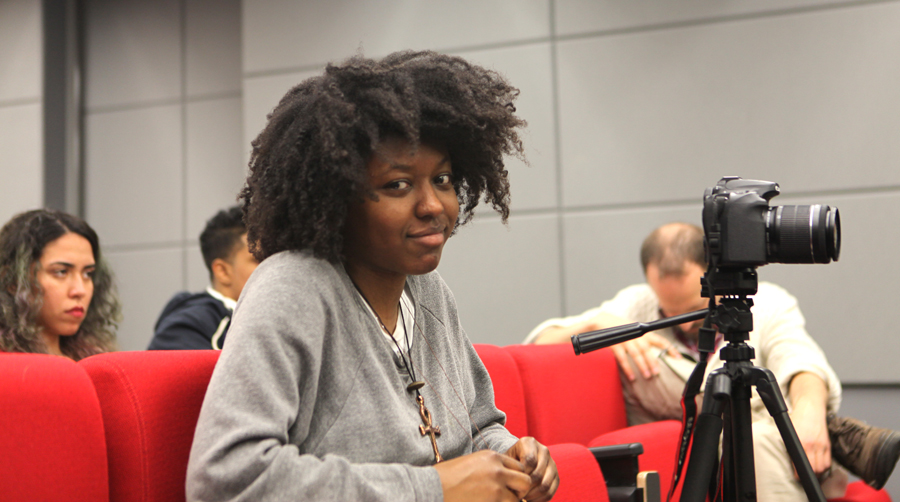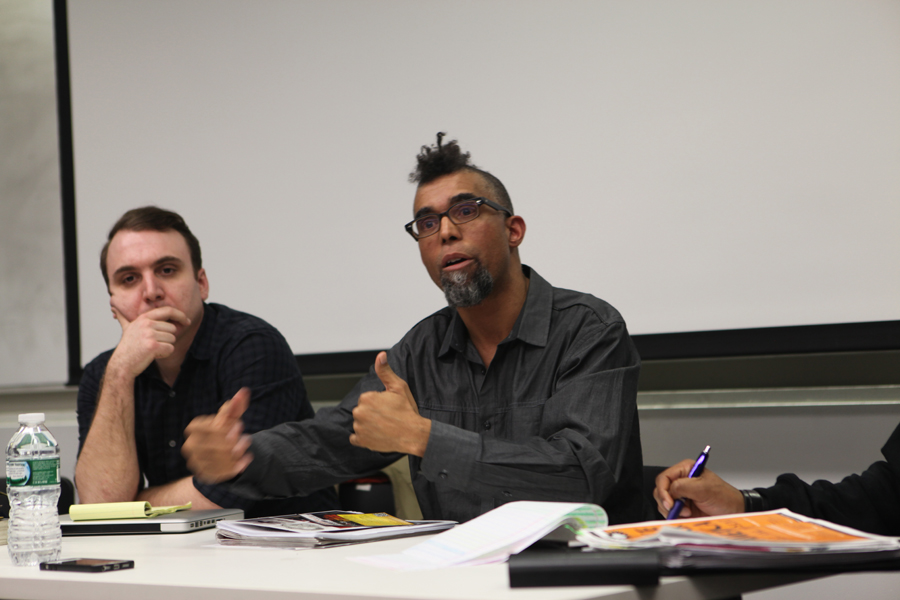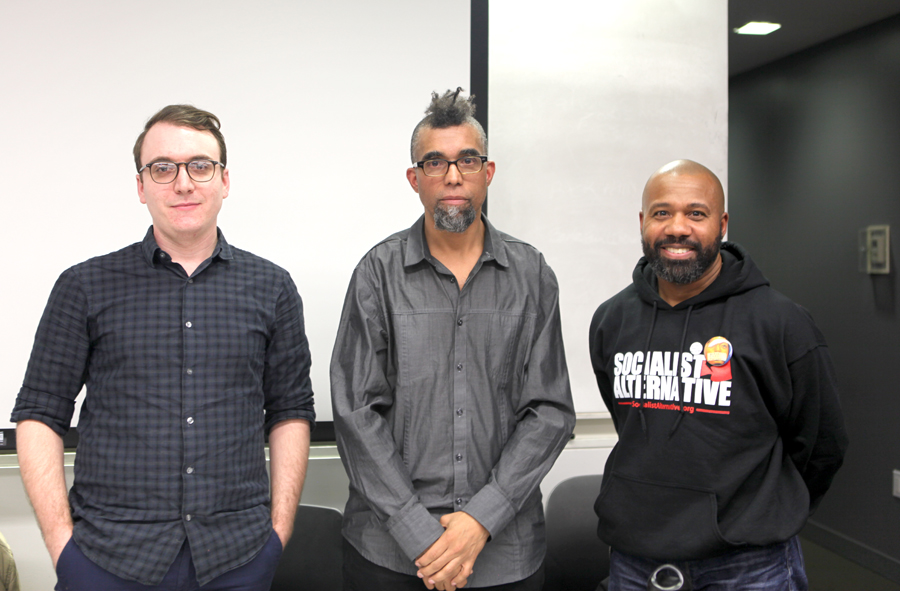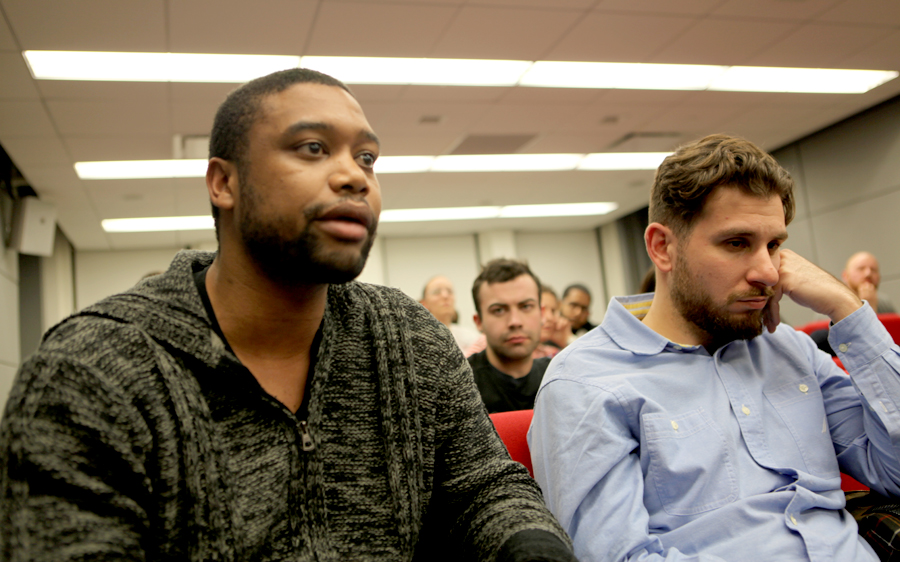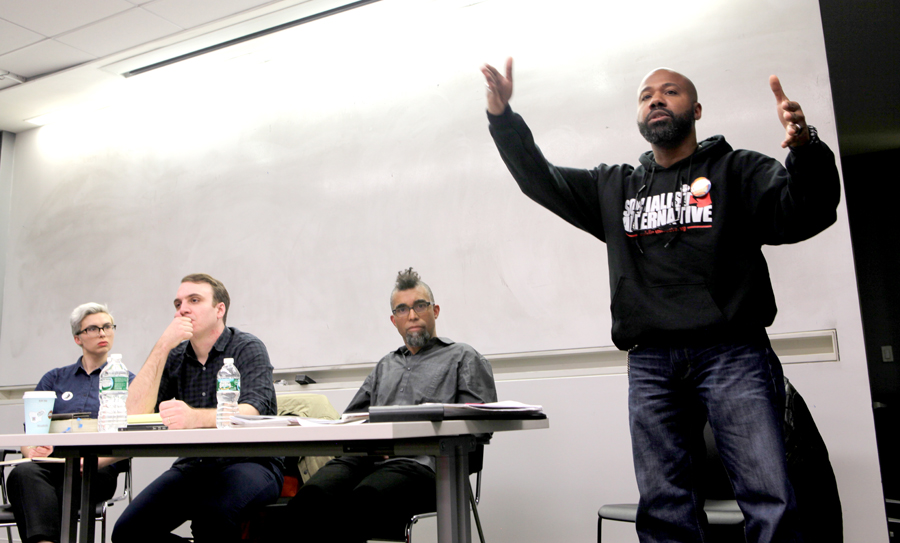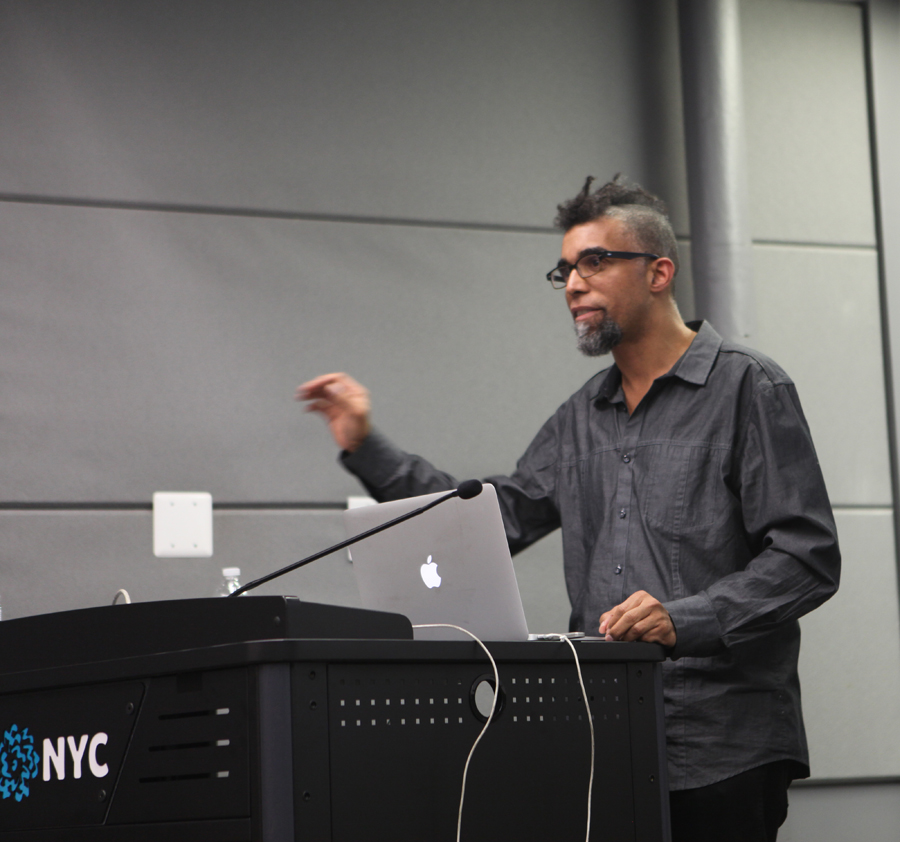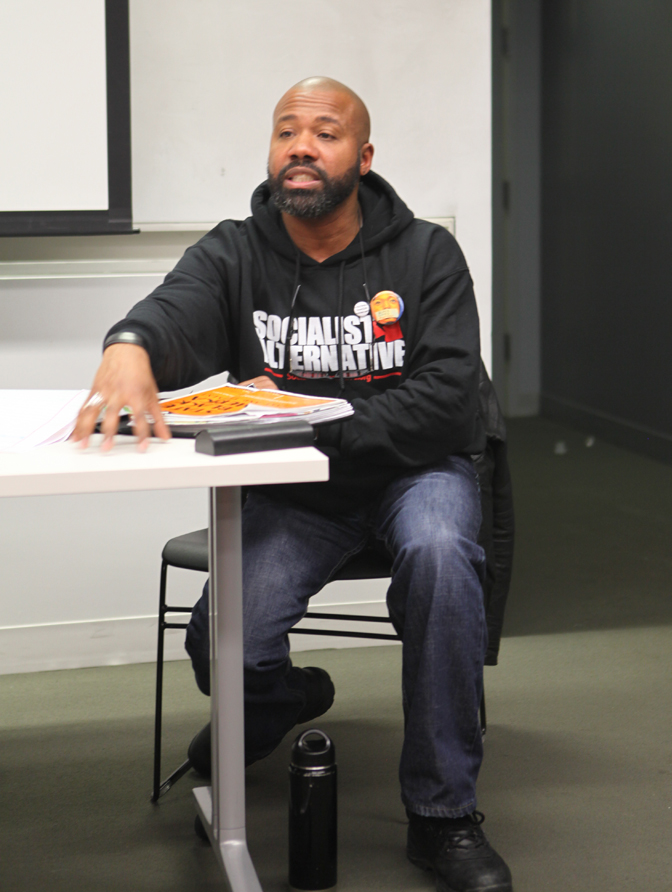On June 30, 2019 at the Left Forum at Long Island University Brooklyn in New York City, the Platypus Affiliated Society hosted a panel titled "The New Deal and American Socialism".
Description:
The New Deal is widely associated with socialism. This association holds true not only within the popular imagination shared across many sections of American society, but also within the historical imagination of the contemporary Left. This panel will consider the New Deal as it appeared to organized political tendencies that struggled for socialism during and after the 1930s. It will ask whether and how the New Deal -- its life, its legacy, its crisis, its memory, and its potential revival -- has advanced the struggle for socialism in America and beyond.
We ask the panelists to consider the following questions:
- How did socialists of various tendencies -- the Communist Party USA, the Socialist Party of America, Trotskyists, and anarchists -- relate to the New Deal during the 1930s?
- How, in their respective views, did the New Deal (considered both as policy and as politics) present obstacles to and/or opportunities for advancing the struggle for socialism?
- The liberal political coalition forged in part through New Deal policies subsequently prosecuted first the anti-fascist Second World War and then the anti-Communist Cold War; it also administered the American-led reconstitution of global capitalism beginning in 1945 that oversaw the creation of the European welfare state. Considering how the New Deal helped usher in a new era of global capitalism: What is the New Deal's relationship to socialism? What is its relationship to capitalism?
Panelists:
Marc Kagan - PhD candidate, CUNY Graduate Center; former officer in Transport Workers Union, Local 100 (New York)
Jason Wright - International Bolshevik Tendency
Jack Devine - PhD candidate, CUNY Graduate Center; Democratic Socialists of America; host of Revolutions Per Minute (WBAI 99.5 FM)
Jack Ross - Author of The Socialist Party of America: A Complete History
On June 30, 2019 at the Left Forum at Long Island University Brooklyn in New York City, the Platypus Affiliated Society hosted a panel titled "Beyond Sect or Movement: What is a Political Center?"
Description:
In his 1973 essay, "Anatomy of the Micro-Sect," Hal Draper gives a definition of a party as opposed to a ‘movement’ or the ‘sects’ that seemed to dominate the Left of his time:
A sect presents itself as the embodiment of the socialist movement, though it is a membership organization whose boundary is set more or less rigidly by the points in its political program rather than by its relation to the social struggle. In contrast, a working-class party is not simply an electoral organization but rather, whether electorally engaged or not, an organization which really is the political arm of decisive sectors of the working class, which politically reflects (or refracts) the working class in motion as it is. A “socialist movement” sums up the mass manifestations of a socialist working class in various fields, not only the political, usually around a mass socialist party.”
Against both the “sect” and merely building a “movement,” Draper argues for the formation of a “political center,” which would be different from a unification of sects, as a first step towards the goal of building a socialist party. How is our present moment similar to or different from that of Draper? What is a socialist party and what are the greatest obstacles today to its realization and how can those obstacles be met? Hal Draper was deeply influenced by his study of Marx and Marxism when he wrote this essay. What can we learn from Hal Draper’s Marxism today?
Panelists:
Spencer A. Leonard - Platypus Affiliated Society
Jim Creegan - ex-SDS, ex-International Bolshevik Tendency, ex-Spartacist League
Michael Hirsch - New Politics Magazine, Portside News Service, DSA
Held June 1, 2018 at the Left Forum at John Jay College in New York.
Panelists:
Spencer Leonard - Platypus Affiliated Society
Terrell Carver - Professor of Political Theory at the University of Bristol
Christoph Lichtenberg - International Bolshevik Tendency
Description:
This year marked the 200th birthday of Karl Marx, than whom, as even his ideological opponent Isaiah Berlin had to admit, "no thinker in the nineteenth century has had so direct, deliberate and powerful an influence upon mankind." This panel seeks to bring together intellectuals committed to exploring Marx’s legacy in this post-Marxist age, those who, once more, seek somehow to bring that legacy to bear upon the world. Accordingly, we want to raise the question: What is the legacy of Marx’s life as a revolutionary intellectual -- that is, the legacy of the political writings and activities he contributed to the workers’ movement for socialism?
Hosted by the Platypus Affiliated Society in conjunction with
the SVA Black Student Union
Panelists:
Ben Blumberg (Platypus Affiliated Society)
Eljeer Hawkins (Socialist Alternative/CWI)
Dread Scott (Artist)
Moderated by: Allison Hewitt Ward (Platypus)
Introduced by: Tiffany Freeman (SVA Black Student Union)
11th March 2015
School of Visual Arts
136 West 21st Street
Room 418F
The widely publicized killings of black men by
police and the resulting movement with its slogan “Black Lives Matter” puts
back on the agenda of a beleaguered American Left a seemingly perennial
question, one that evokes a long history of struggle, longing, and
disappointment. With a black president in the White House having survived or co-opted the #Occupy Movement, the Black Question seems to pose a return to the old platitude that America is racist. At the same time, precisely because of recent history it seems necessary to resist a complacency that threatens to obscure the precise nature of the present, not to mention an adequate analysis of how the Left got where it is today. Such skepticism would appear doubly warranted in light of the fact that the Democrats seem way out in front of this movement, likely soon to have all the necessary police officials and the black vote duly lined up on their side. Given these circumstances and the dangers of yet another historical round of disappointment, another course in diminishing expectations and demobilization, now would seem an opportune moment to reflect
on how this movement might indeed be transformed into the herald of a genuine revival of the Left here in the United States, where it is so badly needed.
One of four panels held by the Platypus Affiliated Society at Left Forum 2014, from May 30th to June 1st, 2014.
We generally assume that Marxists and other Leftists have the political responsibility to support reforms for the improvement of the welfare of workers. Yet, leading figures from the Marxist tradition– such as Lenin, Luxemburg and Trotsky– also understood that such reforms would broaden the crisis of capitalism and potentially intensify contradictions that could adversely impact the immediate conditions of workers. For instance, full employment, while being a natural demand from the standpoint of all workers’ interests, also threatens the conditions of capitalist production (which rely on a surplus of available labor), thereby potentially jeopardizing the current system of employment altogether. In light of such apparent paradoxes, this panel seeks to investigate the politics of work from Leftist perspectives. It will attempt to provoke reflection on and discussion of the ambiguities and dilemmas of the politics of work by including speakers from divergent perspectives, some of whom seek after the immediate abolition of labor and others of whom seek to increase the availability of employment opportunities. We hope that this conversation will deepen the understanding of the contemporary problems faced by the Left in its struggles to construct a politics adequate to the self-emancipation of the working class.
Speakers:
Jon Bekken
Alan Milchman
James Livingston

